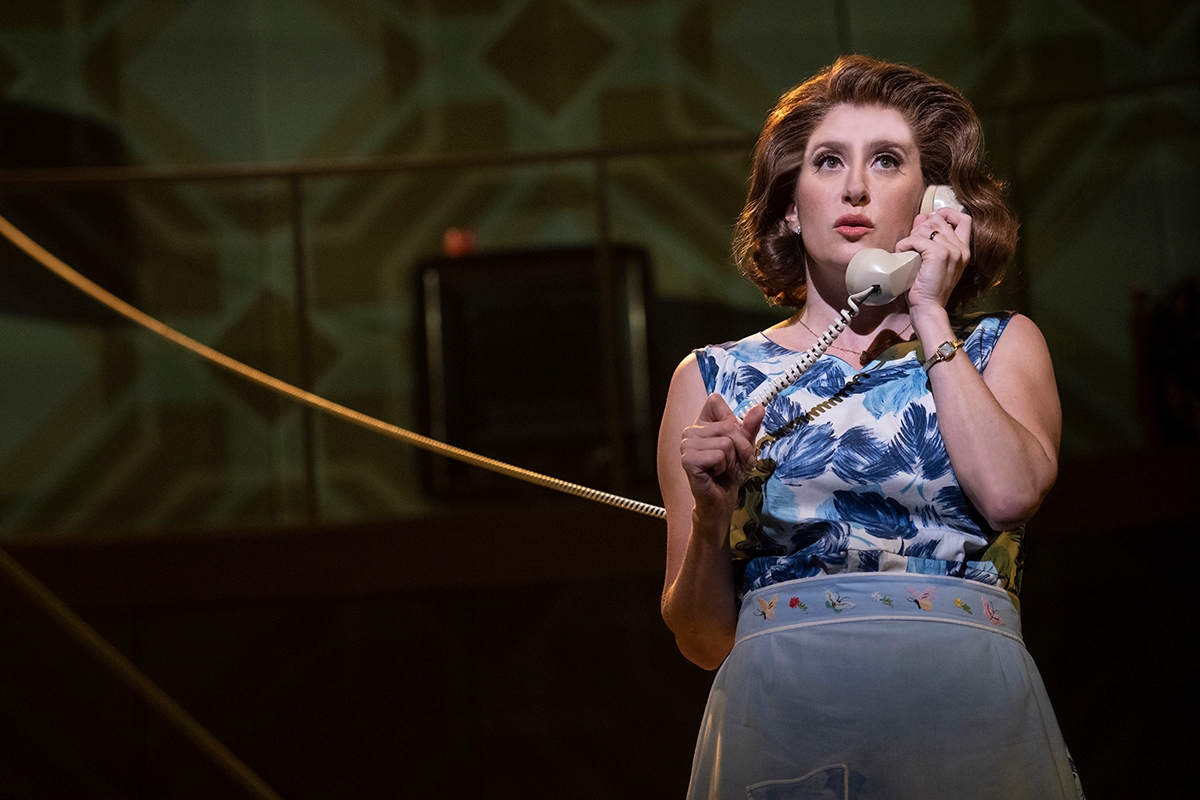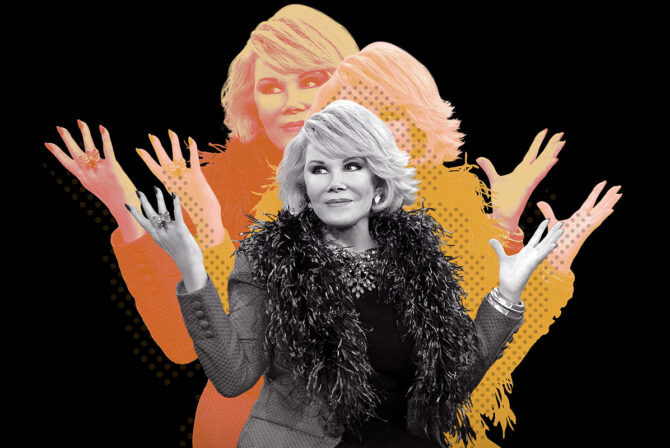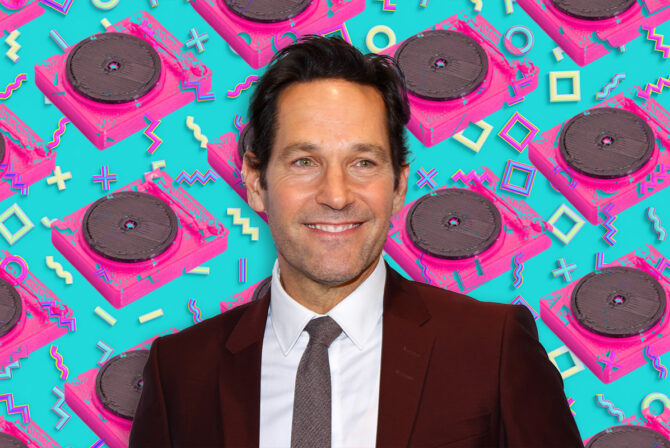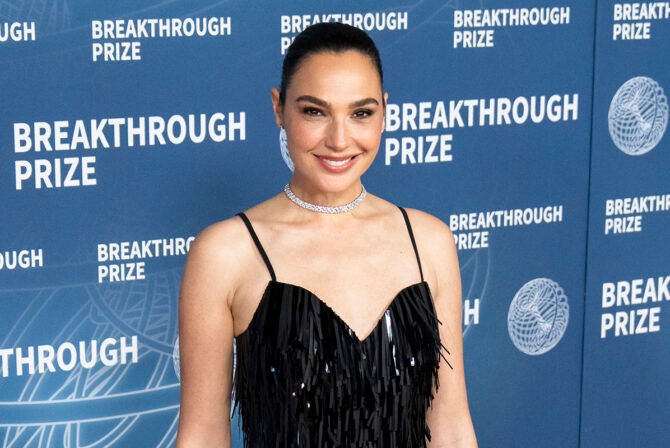Last month, I got the chance to talk with my mishpacha (Yiddish for extended family), Caissie Levy, about her role as Rose Stopnick in New York’s Roundabout Theatre Company revival of the 2004 musical “Caroline, or Change.” The show centers around a 39-year-old maid, Caroline Thibodeaux, in Louisiana. She’s employed by a grief-stricken Jewish family, the Gellmans, of which Rose is the new makeshift matriarch.
Levy is a powerhouse veteran of Broadway, between originating Elsa in “Frozen,” Fantine in the 2016 “Les Miserables” revival, Sheila in the 2009 “Hair” revival, and so many more. Yet despite being a member of the tribe, Caissie had never before played Jewish on stage in her storied career. I asked her how she felt playing such an authentically Jewish role in Caroline, and how her Jewish background played into this complicated, hilarious, and tragic character.
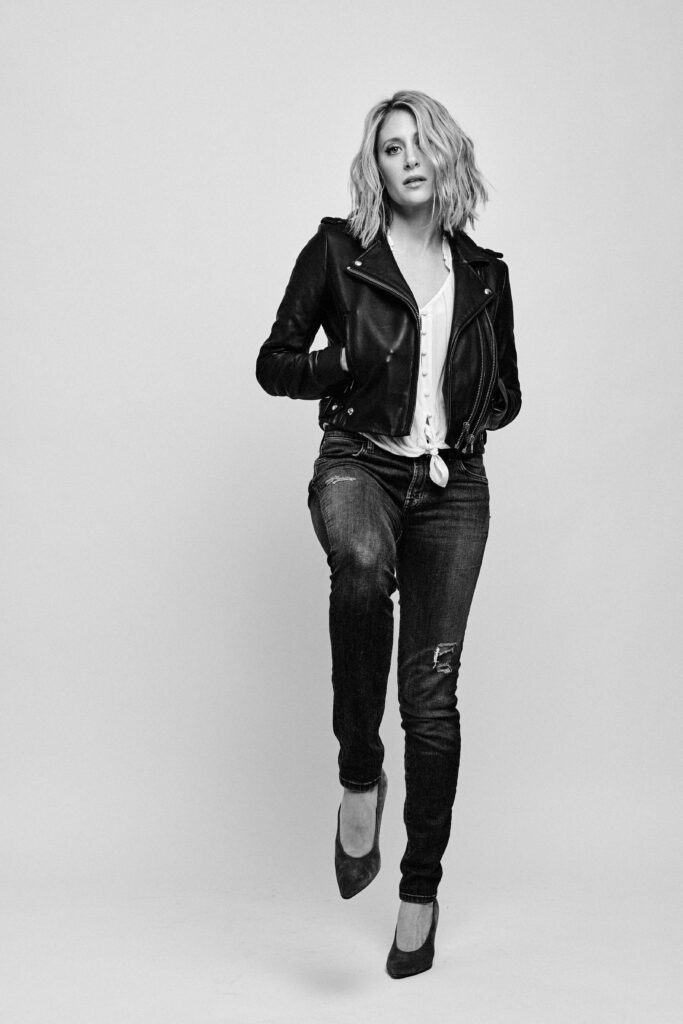
Courtesy of Caissie Levy
Full disclosure: I’m not using “mishpacha” as a nod to the fact that all Jews are connected, yada yada yada. Caissie’s brother-in-law is my brother-in-law’s brother-in-law, which makes us… I don’t know, but there you go.
This interview has been condensed and edited for clarity.
I loved “Caroline” so much, and I was like, “Oh my gosh, I would love to talk to Caissie about this.
That’s awesome. You came already?
I came during previews a couple of weeks ago. So, what is your Jewish past and present?
I grew up just outside Toronto, in Hamilton, Ontario, in a pretty traditional household. I went to Jewish day school until grade eight. I speak Hebrew and went to Camp Ramah my whole life. So, really culturally connected. Now that I’m a mom and have my own family, I’m finding that I’m doing a lot of those traditional cultural aspects of Judaism on the regular because of my kids. We do Shabbat when we can before I go to the show because the kids love the singing, the challah, the candles, all of that. It reminds me of my childhood. We don’t necessarily practice all the time, but we are a very, very Jewish family. We go to my brother-in-law’s synagogue on holidays and it’s our family. Judaism is definitely important to our lives.
How does it feel playing a Jewish character? Have you ever played such a visibly Jewish character before?
No, never. It’s so funny because I was always the girl that couldn’t get an audition for “Fiddler on the Roof.” I’ve always talked about my Judaism and my upbringing, but I’m blonde and a high belter, so for whatever reason, this is the first actual Jewish role I’ve played. It’s been really fun to do it because I just have been able to bring so much of my childhood and who I am innately to the role. I connect with not what happened in the story at all, but to the spirit of the New York Jewish woman that Rose is. Especially because northern Jews and southern Jews are so different. I know that firsthand because I’m a northern Jew, too, and my husband’s a southern Jew, and there are a whole bunch of things that are similar and a whole bunch of things that are different. We navigate that daily. It’s fun and interesting to play that in this show, which is set in the ‘60s, so it’s different and similar in a lot of ways.
How would you describe those differences in your life now with your husband?
I grew up Conservative; he grew up Reform. It’s funny because I think he subscribes to more traditional Judaism than I do, even though growing up, I would have technically been more observant. It’s about meeting in the middle and figuring out how we want to raise our kids. What traditions are we into? What can you do without? How do you feel about religion versus culture? I think every couple deals with differences in religion or lack thereof. I think our Judaism unites us in a lot of ways, but we also have a lot of different viewpoints. It’s been cool to navigate that as we are raising two kids.
Given the north vs. south Jewish divide, how would you describe the Gellman family?
We see Noah Gellman, the little boy in the story, but we never meet his real mother. His mother has just died of cancer. He and his father, Stewart, played by John Cariani, are very much in mourning. His father is sort of unable to engage Noah in any meaningful way. In his grief, he retreats into his clarinet. Noah has a very strong relationship with Caroline, the family’s maid. He idolizes her and loves her.
Then, here comes Rose. We meet Rose trying extraordinarily hard to win over Noah’s affection and failing miserably, and trying to connect with Stewart, her husband, who is so deep in grief he’s unable. Also, this is a liberal New York woman who is really uncomfortable with having a maid at all, and she’s trying to navigate this relationship with Caroline, saying all the wrong things, not for lack of good intentions, but her intentions weren’t good enough.
Did you feel that Rose could step in because of a Jewish familial community?
No, I actually think it was, you know, that really uncomfortable thing that can sometimes happen when tragedy brings people together in a romantic way. I think John and I like to explore this idea that sparks flew between Stewart and Rose, even while Betty was alive but sick, and Betty was almost giving them her blessing. Perhaps because she wanted a mother for the son, and in that moment of complete tragedy, something beautiful came out of it. There definitely is a real spark between the two of them in our back story. I think what happened is that once Betty actually passed and Rose returned to New York to pack up and move to the South, she was met with a different man altogether. Whatever was electric before now was lost in grief. She arrived to become a mother, and she’s sort of stuck in a moment of like, “Oh my God, what have I done? Who am I? What am I doing here?”
Your performance was so funny in addition to being tragic. Do you think that Judaism informed your sense of humor in it?
Oh, yeah, totally. I mean, this is Tony Kushner’s story. He took some liberties, but a lot of it is his reality. I think that his Jewishness is in the writing. I think Jews tend to be called neurotic or worry-warts, which is absolutely part of the humor that I get to explore in Rose. She’s so uncomfortable and trying so hard. It’s really fun for me to play because I’ve done so many dramatic roles in the past few years, and I haven’t been in a comedy in a while, so it’s sort of like a reintroduction for people to see me in that light. I find it so satisfying because it’s so real, just deeply uncomfortable and bumbling. How much she’s missing the mark is just hilarious and tragic at the same time. You can’t help but laugh. A lot of that is just part of our Jewish culture. You know the ability to laugh at ourselves and go to extremes is very Jewish.
What feels important to you about representing Judaism on stage, to do it honestly?
I think that this show is so brilliant, and it also brings out a lot of emotion and people in various walks of life, backgrounds, religions, races, ethnicities, everything. One thing that was really important to me was that people don’t see a stereotype of what a Jewish person in the ‘60s or now would be like. I often see TV shows, films or theater pieces where I feel that Jewish characters are stereotyped and tokenized and not full human beings. I was really, really concerned about that going into this production. So the main thing that aided the process is that most of the people who play Jewish in the show are Jewish. That is not to say that I feel that needs to be what happens across the board at all times. I think it’s case by case, but because the show is so Jewish and the Judaism in the show is so front and center, it’s important to have people playing the roles who are representative of that culture. In the same way that we need to see BIPOC people telling BIPOC stories. And how we need to see LGBTQIA+ people telling their stories.
All of this representation should matter in Judaism, with Jewish roles. I feel like just by nature of having people who are Jewish singing the Hanukkah prayer and doing a hora dance, which is not a real thing for Hanukkah but is actually hilarious, allows it to be authentic and not performative. I feel really proud of that. That isn’t to say that, as is written in the show, just because they’re Jewish means they’re the same kind of Jewish, you know? There are people who are not married to Jews. There are people who are more observant than others. There are people who really don’t know much of the religion aspect at all. And that’s OK, you know? It’s just great that we’re up there, that we’re visible.
That was for sure what I took in because I’ve never seen “Caroline, or Change” live before. It was so striking to see Jewish ritual so visually on stage.
It’s rare. I certainly didn’t see it growing up in theater much, except for “Fiddler,” of course. So it’s very exciting. It’s something I take seriously. I’ve been honored to do it, and it’s a responsibility as well. And that also goes back to the brilliant writing by Tony Kushner. He’s given us a story with such fully fleshed-out characters that their Jewishness is vital to who they are. But it’s not everything they are, and it doesn’t define them. It’s a massive part of who they are, but it doesn’t define what happens in this story.
Because the story isn’t about Judaism, but Judaism impacts it from every angle?
Totally. The story is about Caroline, and it’s really a story that centers on a Black woman. Thank goodness for that. What that production has done so well is that the Jewish storyline in the Jewish family, the Gellmans, are not front and center, nor should they be, but they are present. They matter in the story. I think that’s what makes our production kind of crackle because you’re seeing Jewish people and Black people in the ‘60s. Everybody is a fish out of water; everybody is navigating something. It’s electric to watch these human beings try to find a way to each other. I think that it’s strengthened the storytelling by having these two worlds collide so presently on stage.
What are some of your favorite Jewish stories on stage or screen?
It’s so funny because most of my favorite Jewish stories are Jew-ish stories, you know? Like “When Harry Met Sally,” I watch it at Christmas time because it feels like a Christmas movie, but it’s such a Jewish movie. Obviously, “Fiddler on the Roof” is a musical that made me feel like, “Oh, something I grew up with is up on stage.” “Falsettos” and “Falsettoland” were massive influences on me growing up. It was a combination of everything that I was. It was theater people, it was Jews, it was gay people, and it was all thrown together on stage. I really felt represented in that. It was just such a weird thing for a little girl from Canada to listen to, but it’s such an incredible Jewish story. I mean it was “Les Miz,” “Rent,” and “Falsettoland,” which is hilarious.
Oh my gosh, you have such a great Trina.
Ugh, dream role!
That leads me to my last question: Who is a Jewish character or figure that you would love to play?
Lately, just since “Caroline,” I’ve been getting a lot of people saying I should play Judy Holliday. That would be really, really, really exciting and cool. But I’m also a Bette Middler fan. I’m also a big fan of Carole Kane. I actually crossed paths with her in “Wicked” in L.A. I came in and became Elphaba when she was finishing her run as Madame Morrible, and I’ve always gotten compared to her, too. And of course, Sarah Jessica Parker is my all-time fave. I was always hoping that I would get cast as like her niece or little sister. So, you know, now that [“Sex and the City”] is coming back in a new form, here’s hoping!
Yes, or “Sex and The City: The Musical”!
Yeah!
“Caroline, or Change” is now playing at the Studio 54 Theater until January 9, 2022.
